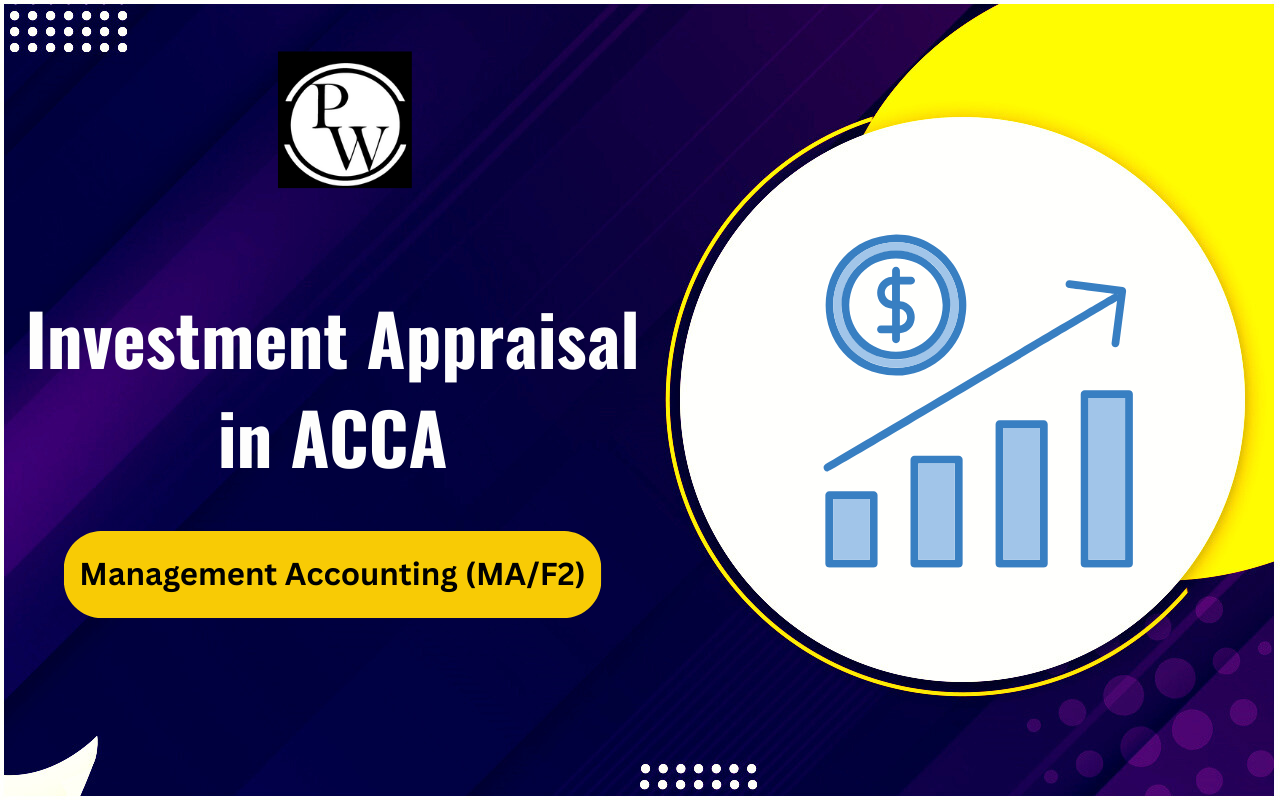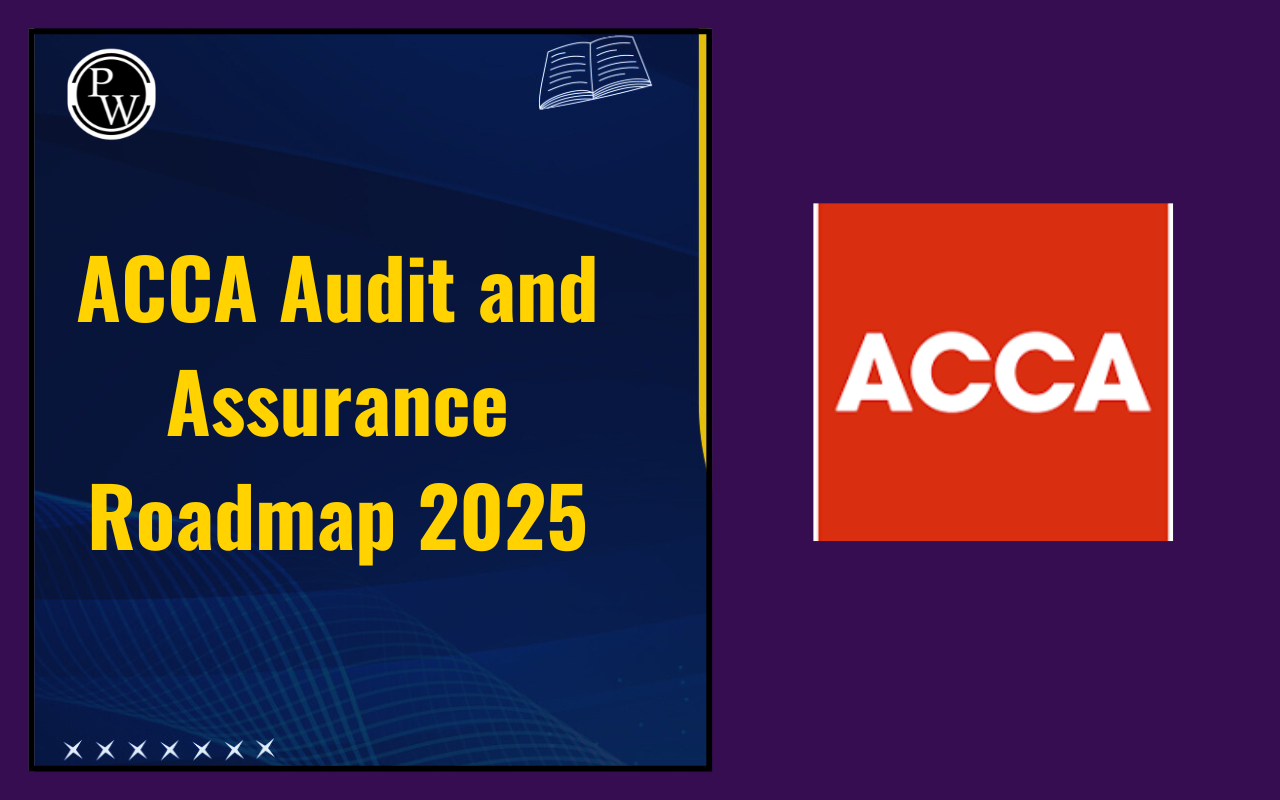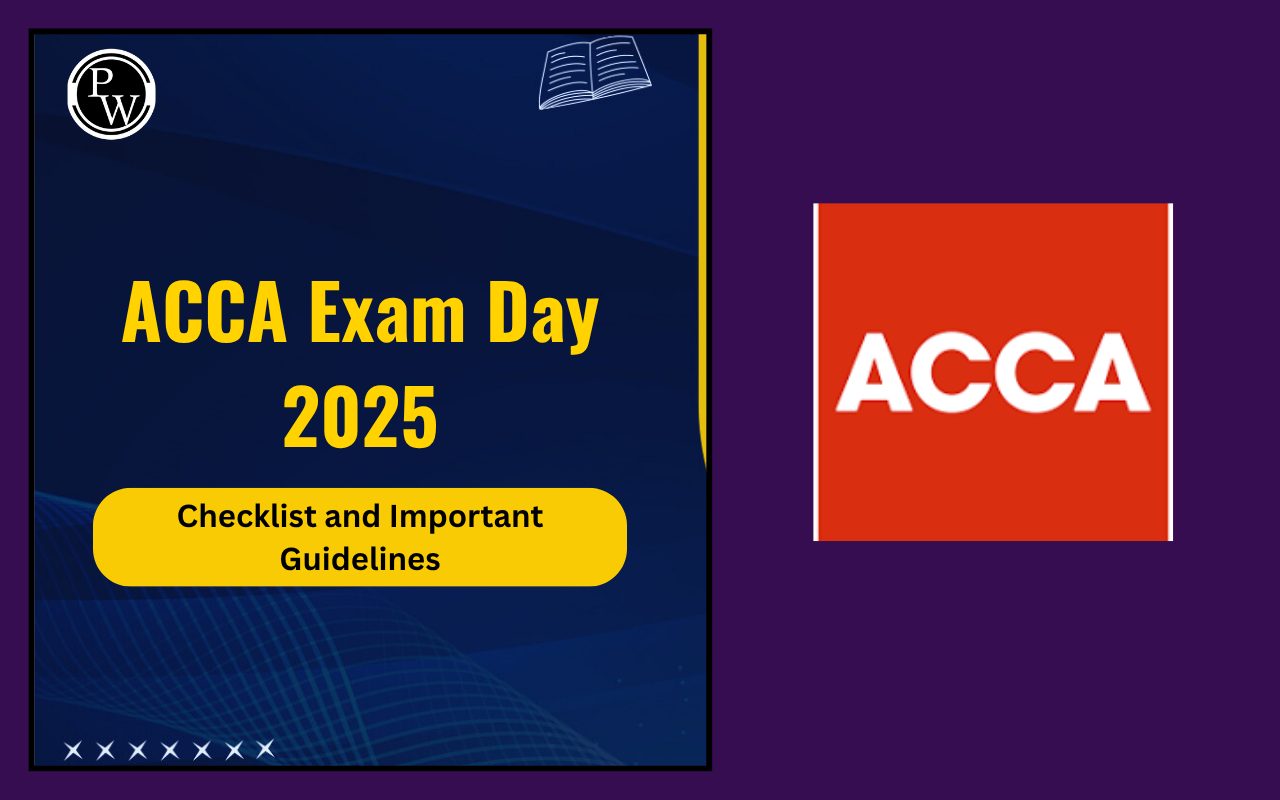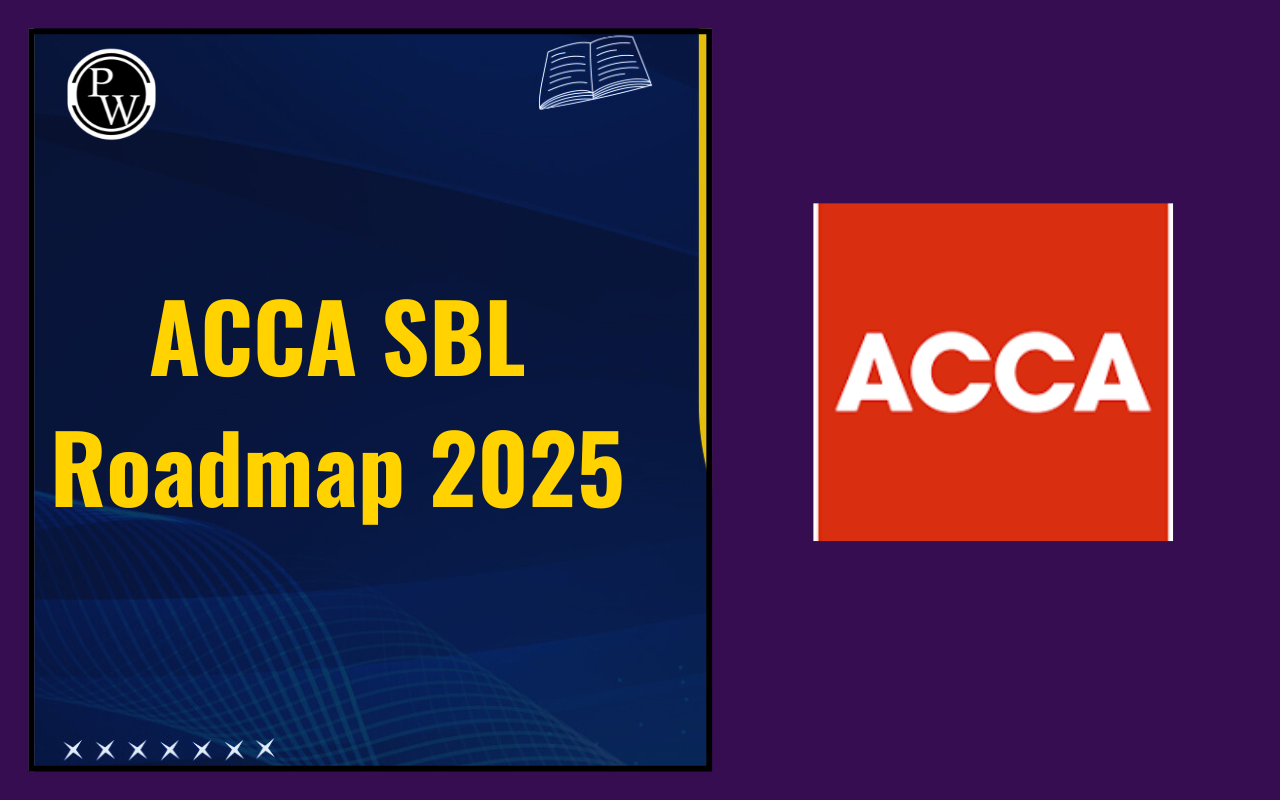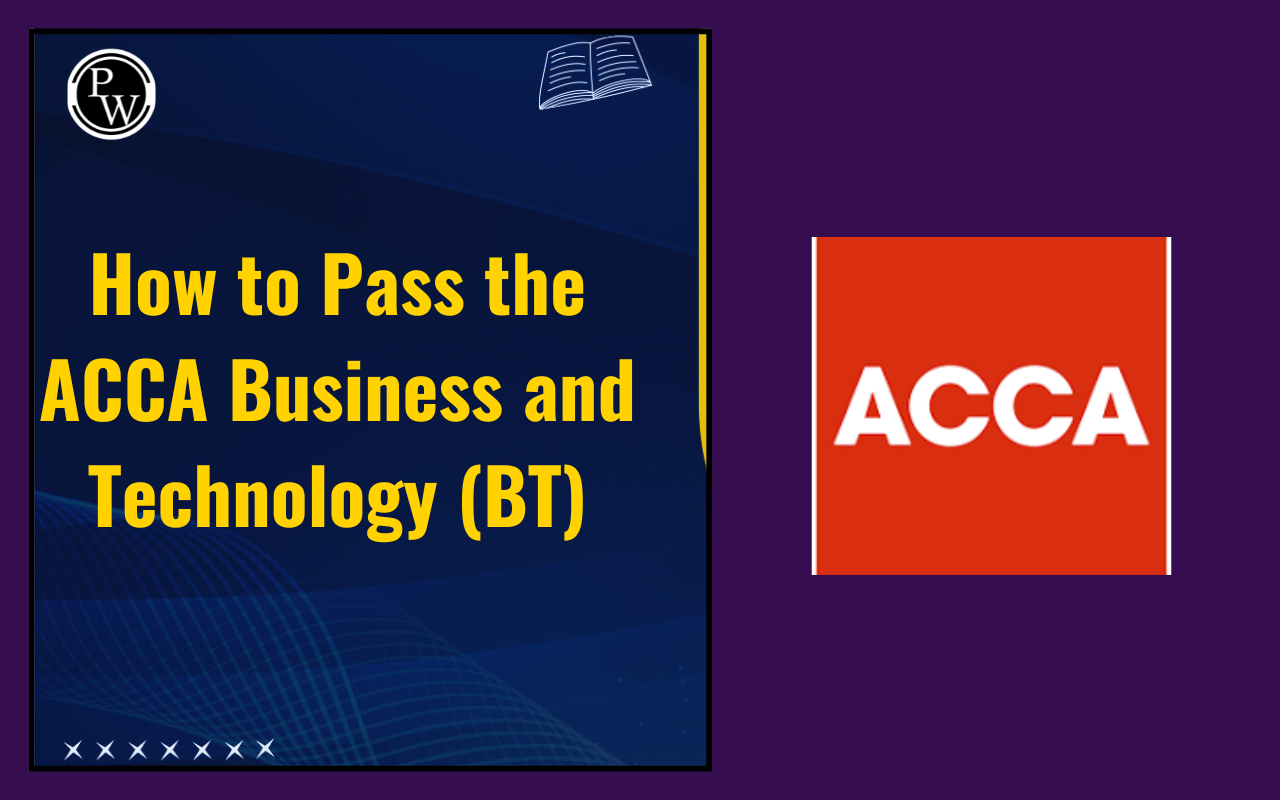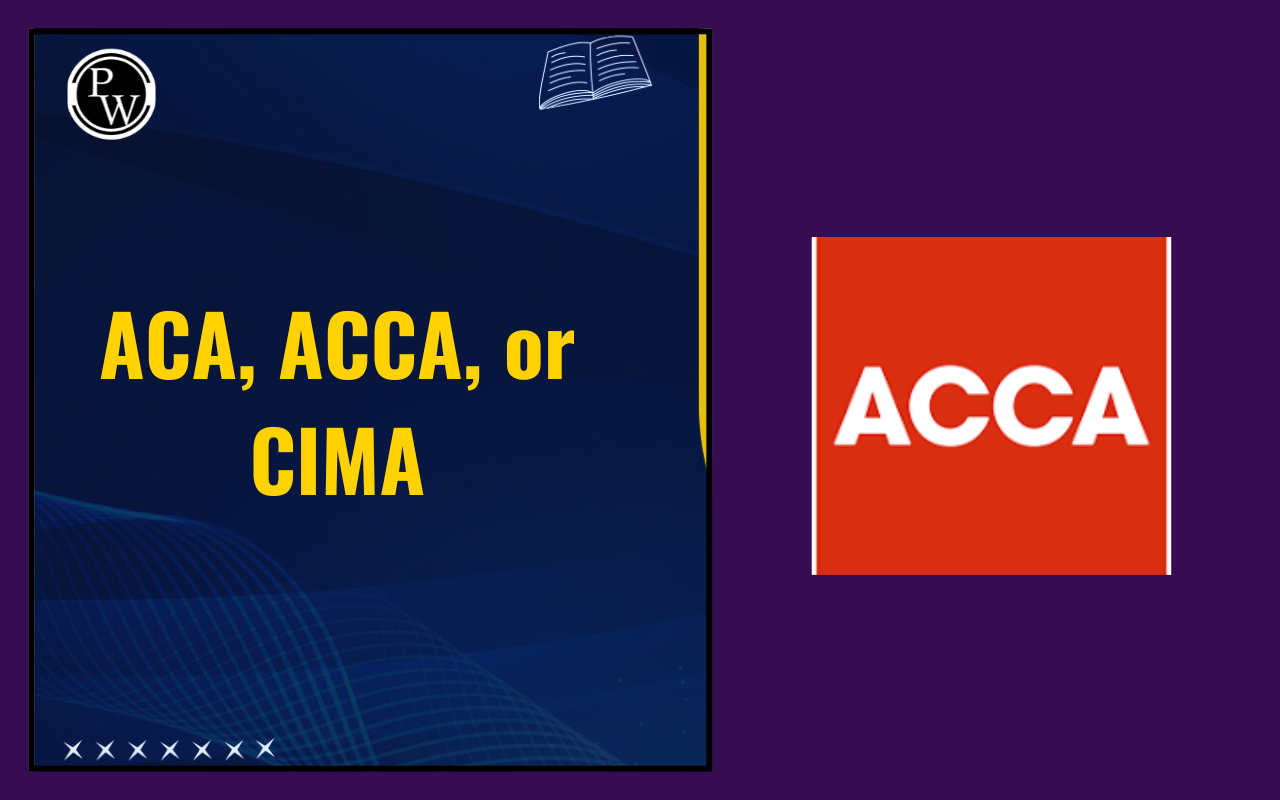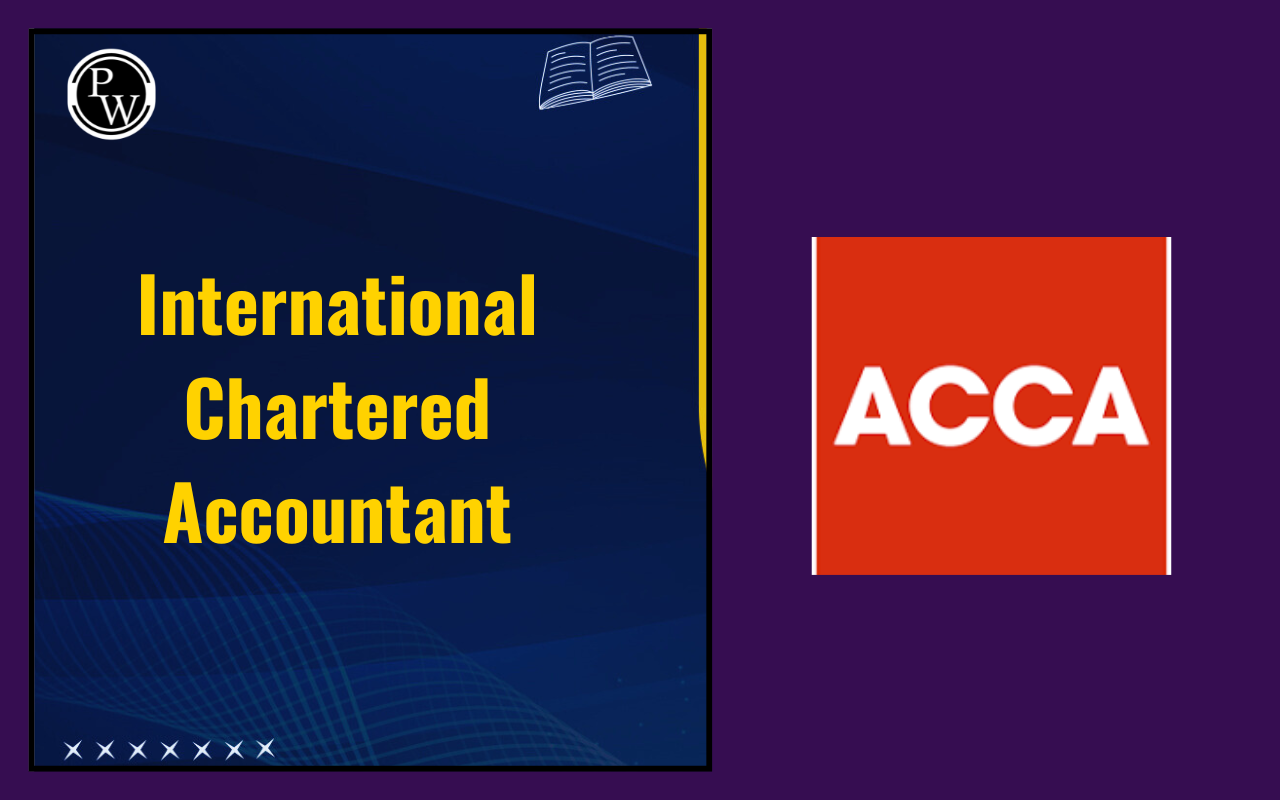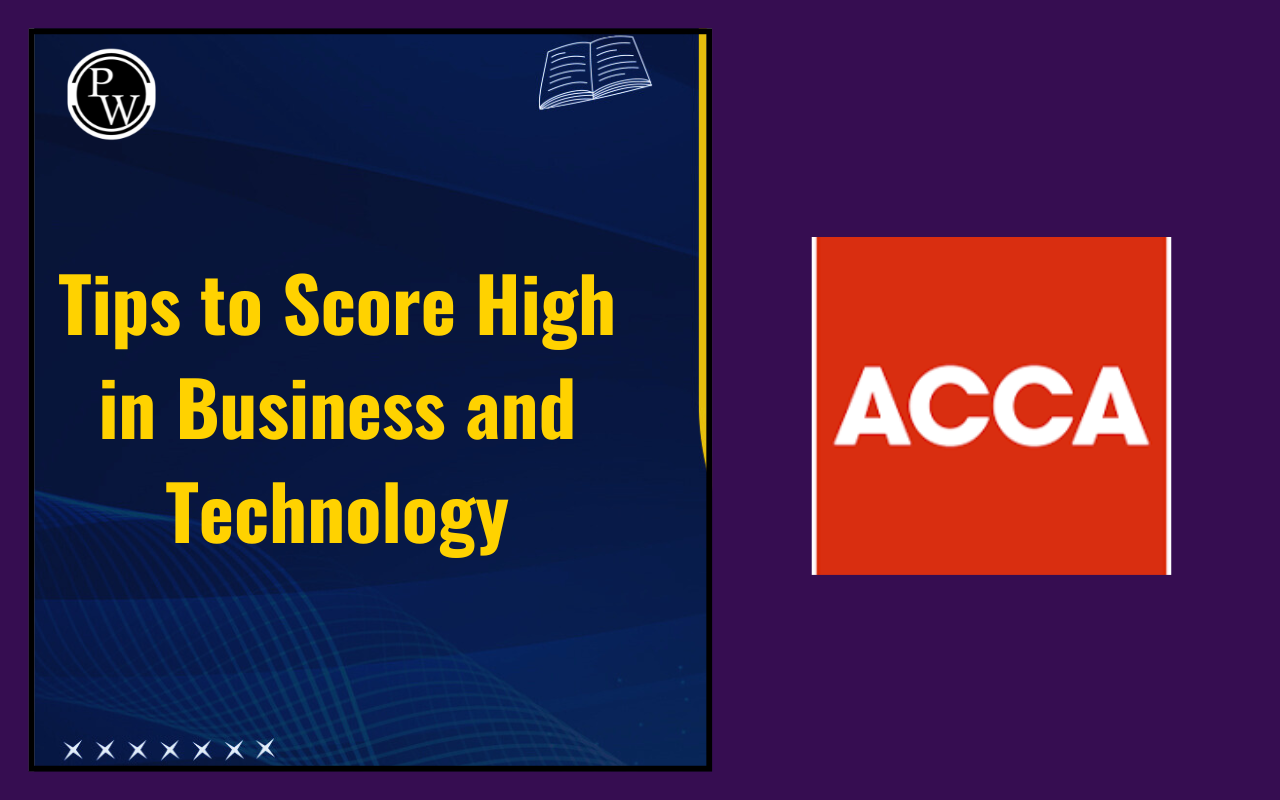
ACCA Course: If you are considering a career in finance or accounting, then the ACCA Course could be the ideal choice for you. ACCA stands for Association of Chartered Certified Accountants, which is an internationally acknowledged credential. The ACCA Course enables students to acquire knowledge in accounting, taxation, auditing, and financial management through practical and current methods. It creates job opportunities in large corporations both in India and Overseas.
What is the ACCA Course?
The ACCA Course is a professional course in accounting that prepares students to work for large businesses, banks, and finance companies. Initially, the ACCA Course was started in the UK in 1904, and now the ACCA course has its members and students in more than 180 countries around the world. If students or anyone wants a career in fields like auditing, tax, finance, or even in management, the ACCA Qualification helps students to develop the skills to pursue a career in these areas.
ACCA Course Overview
Below, we’ve mentioned the necessary details of the ACCA Course, so whether you are in school, college, or already working, you can join the ACCA Qualification:
| ACCA Course Overview | |
| Full Form | Association of Chartered Certified Accountants |
| Duration | 2-5 years |
| Levels | 3 Levels(Applied Knowledge, Applied Skills, Strategic Professional) |
| Total Exams | 13 |
| Mode of Exam | Computer-Based Exams |
| ACCA Eligibility | 10+2 with a minimum 65% aggregate in Maths/Accounts and English, and 50% in other subjects |
ACCA Syllabus 2025
The ACCA 2025 syllabus includes the latest updates in technology, accounting tools, and professional skills.
ACCA Syllabus for Business and Technology (BT)
The ACCA F1 provides an introduction to the business environment and checks the key concepts related to technology.
| ACCA Syllabus 2025 for Business and Technology (BT) | |
| Section | Topic |
| A. The Business Organisation and its External Environment | 1. The Purpose and Types of Business Organisation |
| 2. Stakeholders in Business Organisations | |
| 3. Political and Legal Factors Affecting Business | |
| 4. Macroeconomic Factors | |
| 5. Microeconomic Factors | |
| 6. Social and Demographic Factors | |
| 7. Technological Factors | |
| 8. Environmental and Sustainability Factors | |
| 9. Competitive Factors | |
| B. Organisational Structure, Culture, Governance and Sustainability | 1. The Formal and Informal Business Organisation |
| 2. Business Organisational Structure | |
| 3. Organisational Culture | |
| 4. Governance in Business Organisations | |
| 5. Sustainable Business Practices | |
| C. Business Functions, Regulation and Technology | 1. The Relationship Between Accounting and Other Business Functions |
| 2. Accounting and Finance Functions Within Business Organisations | |
| 3. Regulation and Financial Crime | |
| 4. Financial Information Provided by Business | |
| 5. Financial Systems and Technology | |
| 6. Internal Controls | |
| 7. The Impact of Advances in Technology | |
| D. Leadership and Management | 1. Leadership, Management, and Supervision |
| 2. Individual and Group Behaviour in Business Organisations | |
| 3. Team Formation, Development, and Management | |
| 4. Motivating Individuals and Teams | |
| 5. Learning and Training at Work | |
| 6. Review and Appraisal of Individual Performance | |
| E. Personal Effectiveness and Communication in Business | 1. Personal Effectiveness |
| 2. Consequences of Ineffectiveness at Work | |
| 3. Competence Frameworks and Personal Development | |
| 4. Sources of Conflicts and Techniques for Conflict Resolution | |
| 5. Communicating in Business | |
| F. Professional Ethics | 1. Fundamental Principles of Ethical Behaviour |
| 2. The Role of Regulatory and Professional Bodies in Promoting Ethical and Professional Standards in the Accountancy Profession | |
ACCA Syllabus for Management Accounting (MA)
This subject covers the fundamentals of management accounting, emphasizing key principles:
| ACCA Syllabus 2025 for Management Accounting (MA) | |
| Section | Topic |
| A. The Nature, Source, and Purpose of Management Information | 1. Accounting for Management |
| 2. Sources of Data | |
| 3. Cost Classification | |
| 4. Presenting Information | |
| B. Data Analysis and Statistical Techniques | 1. Sampling Methods |
| 2. Analytical Techniques in Budgeting and Forecasting | |
| 3. Summarising and Analysing Data | |
| 4. Spreadsheets | |
| C. Cost Accounting Techniques | 1. Accounting for Material, Labour, and Overheads |
| 2. Absorption and Marginal Costing | |
| 3. Cost Accounting Methods | |
| 4. Alternative Cost Accounting Principles | |
| D. Budgeting | 1. Nature and Purpose of Budgeting |
| 2. Budget Preparation | |
| 3. Flexible Budgets | |
| 4. Asset Budgeting and Investment Appraisal | |
| 5. Budgetary Control and Reporting | |
| 6. Behavioural Aspects of Budgeting | |
| E. Standard Costing | 1. Standard Costing System |
| 2. Variance Calculations and Analysis | |
| 3. Reconciliation of Budgeted and Actual Profit | |
| F. Performance Measurement | 1. Performance Measurement - Overview |
| 2. Performance Measurement - Application | |
| 3. Cost Reductions and Value Enhancement | |
| 4. Monitoring Performance and Reporting | |
ACCA Syllabus for Financial Accounting (FA)
The ACCA F3 syllabus serves as a beginner’s guide to financial accounting:
| ACCA Syllabus 2025 for Financial Accounting (FA) | |
| Section | Topic |
| A. The Context and Purpose of Financial Reporting | 1. The Scope and Purpose of Financial Statements for External Reporting |
| 2. Stakeholders’ Needs | |
| 3. The Main Elements of Financial Reports | |
| 4. The Regulatory Framework | |
| 5. Duties and Responsibilities of Those Charged with Governance | |
| B. Accounting Principles, Concepts, and Qualitative Characteristics | 1. The Qualitative Characteristics of Financial Information |
| 2. Qualitative Characteristics of Useful Financial Information | |
| C. The Use of Double-Entry Bookkeeping and Accounting Systems | 1. Double-Entry Bookkeeping Principles, Including the Maintenance of Accounting Records |
| 2. General Ledger Accounts and Journal Entries | |
| D. Recording Transactions and Events | 1. Sales and Purchases |
| 2. Cash | |
| 3. Inventories | |
| 4. Tangible Non-Current Assets | |
| 5. Depreciation | |
| 6. Intangible Non-Current Assets and Amortisation | |
| 7. Accruals (Expenses), Prepaid Expenses (Prepayments), Accrued Income, and Deferred Income | |
| 8. Receivables and Payables | |
| 9. Provisions and Contingencies | |
| 10. Capital Structure and Finance Costs | |
| E. Reconciliations | 1. Bank Reconciliations |
| 2. Trade Payables Account Reconciliations | |
| F. Preparing a Trial Balance | 1. Trial Balance |
| 2. Correction of Errors | |
| 3. Suspense Accounts | |
| G. Preparing Financial Statements | 1. Statement of Financial Position |
| 2. Statement of Profit or Loss and Other Comprehensive Income | |
| 3. Disclosure Notes | |
| 4. Events After the Reporting Period | |
| 5. Statement of Cash Flows (Excluding Partnerships) | |
| 6. Incomplete Records | |
| H. Preparing Basic Consolidated Financial Statements | 1. Subsidiaries |
| 2. Associates | |
| I. Interpretation of Financial Statements | 1. Importance and Purpose of Analysis of Financial Statements |
| 2. Ratios | |
| 3. Analysis of Financial Statements | |
ACCA Eligibility Criteria
To apply for the ACCA Course, students must meet the ACCA eligibility criteria to appear for the ACCA Examination. Below, we’ve mentioned the Eligibility Criteria for ACCA exams:
- Students must pass the Class 12 board exams with at least 65% marks in English and Maths/ Accounts subjects
- And in other subjects, students need to score a minimum 50%.
- If students don’t meet the above two criteria, then they can also apply for the ACCA Course through the Foundation in Accountancy(FIA) option.
ACCA Jobs and Salary
After finishing the ACCA Course, students can secure good positions in good firms like TATA, Deloitte, and others. From ACCA Jobs and Salary, students can get a lucrative package of Rs 6 Lakh to Rs 12 Lakh annually. Students can apply for ACCA jobs like:
- Accountant
- Auditor
- Tax Consultant
- Business Analyst
- Financial Advisor
ACCA Exemptions
ACCA provides exemptions for students who have already studied similar subjects like ACCA Subjects. Students who have already studied similar subjects can skip some ACCA exams. These are called ACCA exemptions, which depend on the educational level of the students.
- For Class 12 Students - No exemptions
- For Commerce Graduates(B.Com) - Can skip up to 4 ACCA Exams
- For CA Inter Students - They can skip around 5 exams
- For Fully Qualified CAs - they can skip up to 9 ACCA exams
ACCA Exam Fees India
If you’re an Indian student planning to pursue the ACCA Course, then you should know ACCA Fees in India. Let’s take a look at the updated fee structure for 2025.
| ACCA Fees Structure for Indian Students | |
| Category | Fees (GBP) |
| Initial Registration | £89 |
| Re-registration | £89 |
| Annual Subscription (2025) | £137 |
| Exemption Fees (Applied Knowledge) | £86 per paper |
| Exemption Fees (Applied Skills) | £114 per paper |
| Applied Knowledge Exams | Centre/Remote |
| Applied Skills Exams (Standard Entry) | £147 |
| Applied Skills Exams (Late Entry - Remote) | £147 |
| Applied Skills Exams (Late Entry - Centre) | £376 |
| Ethics and Professional Skills Module | £81 |
| Strategic Business Leader (Standard Entry) | £260 |
| Strategic Business Leader (Late Entry - Centre) | £417 |
| Strategic Business Reporting (Standard Entry) | £185 |
| Strategic Business Reporting (Late Entry - Centre) | £417 |
| Options (AFM, APM, ATX, AAA) (Standard Entry) | £185 |
| Options (AFM, APM, ATX, AAA) (Late Entry - Centre) | £417 |
| Affiliate Subscription (Annual) | £156 |
| Membership Admission Fee | £311 |
| Membership Annual Subscription | £311 |
| Certified Accounting Technician (CAT) Fee | £80 |
| Diploma in IFR | £143 |
ACCA vs CA
For a better understanding of the ACCA course and to see how this finance course is different from other finance courses, i.e. CA, we’ve mentioned a simple difference between ACCA vs CA
| ACCA vs CA | ||
| Feature | ACCA | CA |
| Full Form | Association of Chartered Certified Accountants | Chartered Accountants |
| Duration | 2-5 years | 4-5 years |
| Global Scope | Yes | Mostly in India |
| Work Experience | 3 Years(flexible) | 3 Years Articleship |
| Pass Rate | 40-50% | 5-10% |
| Focus | International Accounting | Indian Accounting & Laws |
Benefits of the ACCA Course
Below, we’ve mentioned why the ACCA Course can be a good option for students who have an interest in Finance and Accounting:
-
Global Recognition: The ACCA Course is accepted in over 180 countries
-
Updated Curriculum: This Course is based on international standards
-
Flexible Learning: The ACCA Course is flexible, students can opt for this course while working.
-
Good Salary: After getting some experience, the ACCA Professional can get a lucrative package and then can get up to or more than 12LPA.
-
Professional Network: The ACCA Professional gets a chance to join a global group of professionals.
The ACCA Course is ideal for those who want to pursue a career in Finance, Accounting, or Management. Whether you are a student or a graduate, this course equips you with skills that are sought after globally.
Featuring details of ACCA Course information, an updated ACCA Syllabus for 2025, adaptable study choices, and robust career assistance, the ACCA Qualifications equips you for employment with leading firms.
| Also Check: |
| Irrecoverable Debts and Allowances for Recoverables |
| Taxation Examiner Report |
| How to Attempt ACCA MCQs Smartly for Maximum Marks? |
| Can You Finish ACCA in Two Years? |
ACCA Course FAQs
How long does it take to complete the ACCA course?
Can I start ACCA without any accounting background?
Are all levels compulsory in the ACCA course?
What are optional papers in the Strategic Professional Level?
Is practical work experience necessary for ACCA membership?

